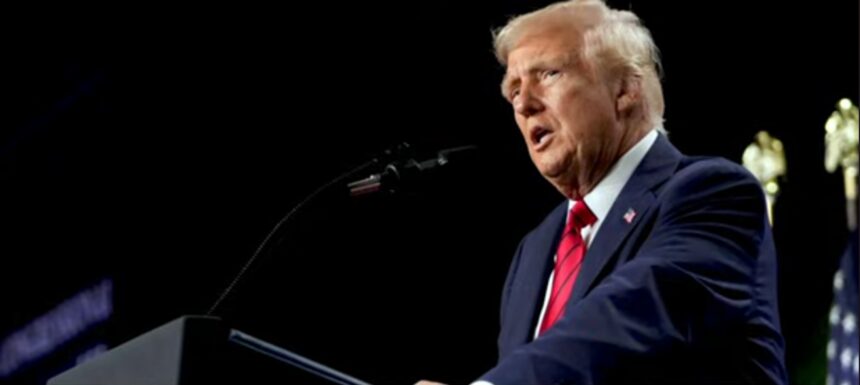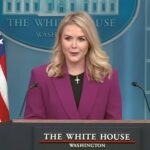The Trump administration’s recent federal funding freeze has led to widespread uncertainty and concern, particularly regarding its impact on Medicaid and other essential public programs. While the administration initially claimed that Medicaid and other critical services would be exempt, technical issues and confusion surrounding the policy led to disruptions in healthcare payments, education funding, and social service programs. The sudden halt of federal financial support left state agencies scrambling, raising legal and political questions about the administration’s authority to withhold funds.
As legal challenges mount and policymakers debate the implications of the freeze, millions of low-income Americans, healthcare providers, and state officials find themselves in a state of uncertainty. Despite White House assurances, the incident has revealed the fragility of government-dependent programs and the challenges that arise when political decisions disrupt essential services.
On January 28, 2025, the Trump administration announced a freeze on all federal grants and loans, pending a review of these programs to determine whether they align with the administration’s policy goals. While this move was presented as a cost-control measure, it immediately sparked concerns across various sectors, especially among state governments, educational institutions, and healthcare providers who rely on federal funds.
Despite the administration’s claim that Medicaid would be exempt from the freeze, early reports suggested that state Medicaid agencies were unable to access the payment portals, effectively delaying reimbursements to hospitals, doctors, and other healthcare providers. The freeze also affected early childhood education centers, housing assistance programs, and food security initiatives, leading to widespread panic and frustration among those who depend on these services.
The sudden policy change left states in limbo, with many struggling to determine whether their funding sources would be restored. Some state agencies warned that healthcare providers might be forced to suspend services if payments were not processed soon. Others raised alarms about Medicaid beneficiaries experiencing delays in receiving care, as hospitals and clinics were unable to verify eligibility or process claims.
Following the immediate backlash, White House Press Secretary Karoline Leavitt addressed the issue, stating that the administration was aware of the disruptions and working to resolve them. She reassured the public that Medicaid payments had not been frozen, attributing the issues to a technical glitch rather than an intentional policy change. However, her statements did little to quell the mounting concerns from state officials, healthcare providers, and legal experts.
Democratic lawmakers were quick to condemn the funding freeze, calling it a reckless move that endangered millions of Americans. House Speaker Hakeem Jeffries criticized the administration, stating:
“This irresponsible decision has created chaos for our most vulnerable citizens. The administration must immediately restore full access to Medicaid and other essential services.”
Legal experts also questioned the constitutionality of the funding freeze, arguing that the executive branch does not have unilateral authority to withhold funds that have already been allocated by Congress. This led to multiple lawsuits being filed against the administration, with states like California, New York, and Illinois leading the legal charge against the freeze.
Amid the legal battle, a federal judge issued a temporary injunction, blocking the administration from enforcing the funding freeze until the matter could be further reviewed. The judge ruled that the freeze posed a serious risk to public health and welfare, particularly for Medicaid recipients who depend on uninterrupted access to healthcare services.
The ruling was seen as a major victory for those opposing the funding freeze, as it forced the administration to restore payments while legal challenges continued. However, the uncertainty surrounding the policy has already caused significant damage, with state agencies and healthcare providers struggling to recover from the disruption.
Even with the judicial intervention, trust in the stability of federal funding has been shaken, particularly among organizations that rely on consistent and predictable government support. Many states have begun exploring contingency plans, including setting aside emergency reserves to prevent future crises resulting from sudden federal policy changes.
For healthcare providers, the temporary freeze has already resulted in financial strain, with hospitals, clinics, and private practices struggling to manage cash flow disruptions. Some providers reported delays in processing Medicaid claims, forcing them to temporarily limit services or delay payments to staff.
Patients who rely on Medicaid for doctor visits, prescription medications, and emergency care faced confusion and uncertainty, with many wondering whether their coverage had been affected. Community health centers, which serve low-income and uninsured patients, expressed deep concerns about potential long-term damage to patient trust.
A clinic administrator in Ohio shared their experience:
“Patients were calling nonstop, asking if their Medicaid was still valid. We had no answers for them. Even a short-term disruption like this can have serious consequences for people with chronic illnesses or urgent medical needs.”
These concerns highlight the broader implications of policy decisions that impact federal healthcare programs, particularly when changes are made abruptly and without clear communication.
The funding freeze has escalated tensions between state governments and the federal administration, with governors across party lines criticizing the lack of transparency in the decision-making process. Even some Republican-led states expressed frustration over the uncertainty created by the freeze, warning that healthcare disruptions could hurt local economies and vulnerable populations.
The incident has also reignited debates over the future of Medicaid and federal-state relations in healthcare funding. Some conservative policymakers argue that states should have greater autonomy in managing Medicaid funds, while Democratic leaders insist that federal oversight is essential to ensuring equitable healthcare access.
With the 2025 budget negotiations approaching, Medicaid funding is expected to be a major point of contention. Lawmakers on both sides are preparing for heated debates over budget cuts, program expansions, and potential reforms aimed at preventing future disruptions.
The recent Medicaid funding scare has underscored the critical need for stability and transparency in healthcare policy. While the funding freeze was partially reversed, the uncertainty it created has left lasting concerns for states, healthcare providers, and Medicaid recipients. Millions of Americans depend on Medicaid, and any disruptions in funding can have life-threatening consequences.
As legal battles continue and Congress debates the future of Medicaid funding, one thing remains clear: policy decisions affecting healthcare must be made with greater foresight, communication, and bipartisan collaboration. Sudden, unilateral moves that impact essential services only serve to create panic, legal disputes, and unnecessary harm to those most in need.
Moving forward, both federal and state governments must prioritize stability in healthcare funding, ensuring that programs like Medicaid remain reliable and accessible for the millions who depend on them. Whether through legislative safeguards, legal protections, or improved administrative coordination, the future of Medicaid must be safeguarded against political unpredictability.






